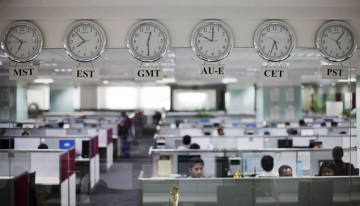 The European outsourcing market saw a record first quarter this year but beancounters at ISG, said that the UK has slipped behind other parts of Europe
The European outsourcing market saw a record first quarter this year but beancounters at ISG, said that the UK has slipped behind other parts of Europe
In the first three months of the year the value of outsourcing grew 23 percent year on year to £3.4 billion.
Traditional outsourcing, which has often faltered in recent quarters, saw growth of 24 percent as-a-service outsourcing rose 21 percent.
Steve Hall, partner and president of ISG, said: “The drive for digital transformation shows no signs of slowing. European businesses are investing in their future, despite the continuing political and economic uncertainty in Europe and the six-month extension to the Brexit deadline.
“Much of EMEA’s regional growth is being fuelled by a robust IaaS market, with hybrid and multi-cloud emerging as the architecture of choice.”
In the UK, traditional outsourcing grew a “modest” seven per cent, ISG said, with the number of new deals flat.
“With an extended timeline and no clear conclusion in sight for the Brexit negotiations, UK companies are continuing to exercise caution in their traditional sourcing investments and are focusing their spending on new technologies that will increase their agility and efficiency,” the analyst explained.
The DACH market saw traditional outsourcing grow 63 per cent year on year after “several quarters of lacklustre contracting”.
ISG said the German market was helped by the start of a number of contracts that had previously been delayed as a result of Brexit uncertainty.
Globally, the market watcher said that regions globally are preparing for economic struggles.
“Growth has slowed in Europe and China, large enterprises appear to be preparing for a downturn in the US during the second half of the year and concerns of a broader, global slowdown remain. While the dark clouds of a looming economic downturn are on the horizon, the long-term forecast for sourcing remains sunny,” Hall said
 Cloud-based XaaS projects have fuelled a dip in the global IT outsourcing market according to beancounters at ISG.
Cloud-based XaaS projects have fuelled a dip in the global IT outsourcing market according to beancounters at ISG.















